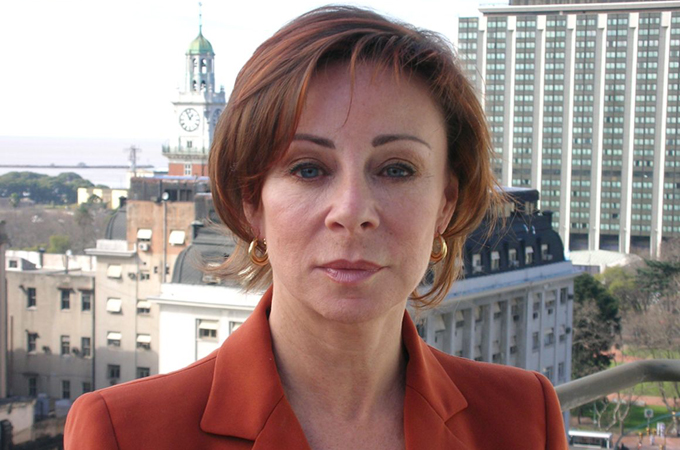Bolivia’s Morales declares election victory
Unofficial results say South American nation’s leftist president has swept poll with 59.5 percent of the vote.

Evo Morales has won a third term as Bolivia’s president with a landslide win, according to an unofficial quick count of the vote.
Morales, a native Aymara from Bolivia’s poor Andean plateau, received 59.5 percent of Sunday’s vote against 25.3 percent for cement magnate Samuel Doria Medina, the top vote-getter among four challengers, according to a quick count of 84 percent of the voting booths by the Ipsos company for ATB television.
Keep reading
list of 4 itemsChad’s Mahamat Deby confirmed as winner of disputed presidential election
Why are protests against France raging in New Caledonia?
South Africa’s Ramaphosa signs health bill weeks before election
Al Jazeera’s Latin America editor Lucia Newman, reporting from La Paz, said Morales’s ecstatic supporters waved flags, set off firecrackers and sang songs, celebrating his victory.
 |
| Morales spoke to his supporters from the balcony of the presidential palace in La Paz on Sunday [Lucia Newman] |
“Morales, who has been struggling to recover from a bad cough, spoke to his supporters from the balcony of the presidential palace,” she said.
“He thanked them for supporting the ‘fight for liberation’ and vowed to continue his fight against imperialism and capitalism. He also said that in this third term he would build a nuclear power plant ‘for peaceful energy purposes’ and turn Bolivia into an energy hub.”
Morales, a former coca grower, has promised to consolidate his brand of “indigenous socialism” that has extended the role of the state in a booming natural gas-powered economy.
He has pledged to consolidate his socialist system that has expanded the role of the state in the economy and sharply reduce poverty levels.
Economic growth has averaged five percent annually, well above the regional average.
Nearly six million Bolivians cast their ballots on Sunday in presidential and congressional polls.
Morales was more than 40 points clear of his rival in the pre-election public polls.
Commodities boom
Since Morales first came to office in 2006, a boom in commodities prices has increased export revenues ninefold and the country has accumulated $15.5bn in international reserves.
Morales’ rivals accuse him of using his power to control the courts and of violating the constitution which limits a president to two consecutive terms.
Last year, the Supreme Court decreed his 2006-2009 period in office should not be counted as a first term as it preceded the adoption of the new constitution. Opponents criticised the decision.
Morales has also drawn opposition from environmentalists and many former indigenous allies by promoting mining and a planned jungle highway through an indigenous reserve.
Despite Bolivia’s economic advancements, it remains one of South America’s poorest countries and many economists think it depends too much on natural resources.
In the first half of 2014, natural gas and minerals accounted for 82 percent of export revenues.
Last year, Transparency International’s perception index ranked Bolivia as South America’s third most corrupt country after Venezuela and Paraguay, and Morales’ opponents say he has spent millions in government money on his campaign, giving him an unfair advantage.
NOTES FROM OUR CORRESPONDENT IN THE FIELD
 |
| Al Jazeera’s Lucia Newman |
“Morales combines conservative economics with leftwing rhetoric and social spending,” policial analyst Andrés Torrez told Al Jazeera.
“Everyone is making money, wages have doubled and while the opposition loathes him, they say they are no hurry to see Morales leave.”
A female Bolivian minor told Al Jazeera that Morales had changed her life and made women no longer invisible in Bolivia.
Jorge Chawanca, a 65-year-old driver from Cochabamba in central Bolivia, said “Evo taught those men in ties [politicians] a lesson. When Goni [Gonzalo Sanchez de Lozada] was president, we thought because he spoke better English than Spanish he would develop Bolivia. All they did was steal and govern for themselves. Who would have thought an uneducated indigenous Aymara, a coca farmer, end up being the best President we’ve ever had.”
President Evo Morales still holds the post of president of the coca growers’ union in El Chapare, the tropical region in Bolivia where he voted.
“It’s more of an honorary title,” he told Al Jazeera. “I have no time to run the union.
“But it is an honour for the farmers and for me. This is where I learned about life and forged my political career. We learned to struggle, to cry and to succeed together.”